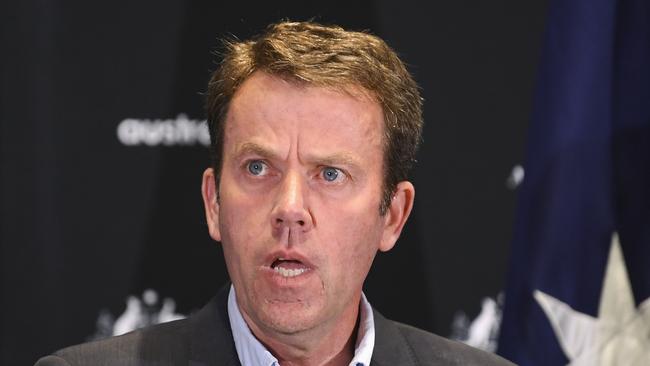The China trade problem isn’t really about trade

Clearly, we have a China problem. But trade sanctions are just the symptoms, not the disease. China doesn’t really have any trade disputes with Australia, and it is hard to identify any actual provocations to justify the Chinese government’s warning that “if you make China the enemy, China will be the enemy”.
To really understand the problem, just listen to China. Last month, its embassy in Canberra handed the media an ultimatum of 14 points and only three of China’s charges related to foreign policy: a demand that Australia keep out of South China Sea disputes, a complaint about support for human rights in Xinjiang and Hong Kong, and a condemnation of Australia’s call for an independent international inquiry into the origins of coronavirus. None of the charges related to trade.
The other allegations in the embassy ultimatum focused on China’s displeasure with our handling of our own domestic politics: the strengthening of foreign investment and interference laws, the effective exclusion of Chinese companies from the 5G network, the government’s funding for the Australian Strategic Policy Institute, moves to protect Australia from cyber attacks and the investigation of China-linked espionage and corruption.
China even criticised our tolerance for free speech among our own citizens, implying the government should somehow muzzle ASPI, members of parliament and the press.
That’s all a bit rich coming from a country whose entire foreign policy doctrine is based on the principle of non-interference in other countries’ internal affairs. But China does interfere in others’ internal affairs, routinely, and nowhere more so than in Australia. Having had things its own way here for most of a decade, it is now incensed to find Australia asserting its right to govern itself.
After all, China spent a lot of money gaining influence in Australia. It overpaid for key infrastructure, sponsored 13 Confucius Institutes at universities and encouraged businesspeople to make massive donations to political parties, think tanks and cultural institutions. Since 2007, it has allowed more than 100,000 Chinese students a year to pursue educational opportunities in Australia. It has also turned a blind eye to the billions of dollars flowing into residential real estate here, in defiance of China’s own foreign exchange controls.
Did Australians really believe there would be no price to pay for all this largesse? Is the story of the Pied Piper of Hamelin not included in our children’s anthologies? Is Faust not staged by Opera Australia? Of course there is a price to pay. Australian universities are afraid to utter so much as a tweet that offends China. A Perth museum apologised for an exhibit saying the coronavirus originated in China — obsequiously calling it a “factual error”. Theatres have refused bookings from performance groups linked to Taiwan or Falun Gong, the spiritual practice banned by China. Corporate kowtowing can be taken for granted, but these are public institutions, funded by the taxpayer with an obligation to operate in the public interest.
China knows the Achilles’ heel of every liberal democracy is easy money. In the absence of Chinese money, it is inconceivable Australia’s elite would ever have become so complacent about Chinese militarism, religious persecution and cultural genocide. Now public opinion has upset the applecart, China has reacted furiously. The Chinese government paid good money for its Australian values, and is loath to see it wasted.
China’s recent propaganda taunts and trade sanctions are the bitter recriminations of a lover scorned, and there is nothing Canberra can (realistically) do to return to Beijing’s good graces. The sticking point is that the Australian public has rebelled against the elite sellout of our values. As long as the country remains a democracy, that’s a problem the elite fixers won’t be able to fix.
It may be profoundly unfair to the farmers and coalminers, but our China problem can’t be solved by a new Trade Minister. It requires root-and-branch institutional reform. The government’s foreign interference laws are only a baby step in that direction. It’s the institutions themselves that have to cut strings to Chinese money and learn to walk on their own again.
Salvatore Babones is an associate professor at the University of Sydney and a columnist for Foreign Policy magazine.



We have a new Trade Minister and his first challenge is China. Dan Tehan comes into the portfolio at a time when China has placed embargoes of one kind or another on Australian lamb, beef, wine, barley, even lobsters — just about everything except iron ore. The Chinese government is so intent on lashing out that it has restricted winter heating for its own people, rather than allow them to burn Australian coal.